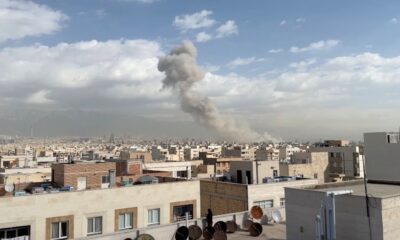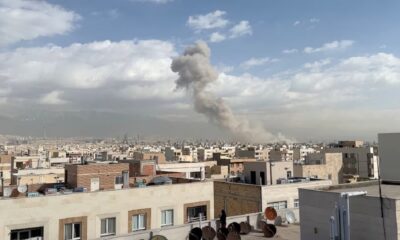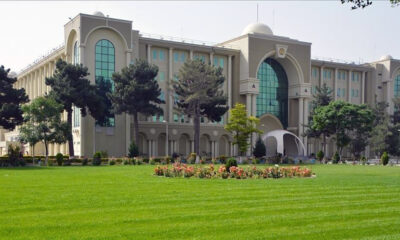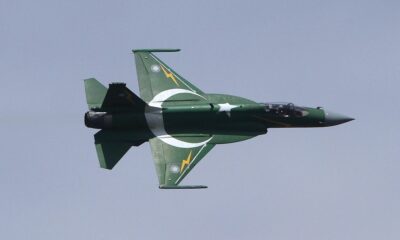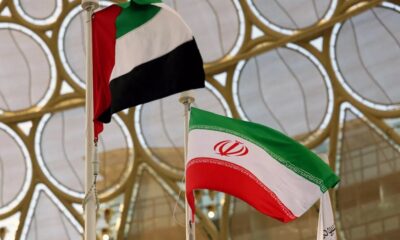Latest News
Daesh claims responsibility for killing 3 female TV staffers
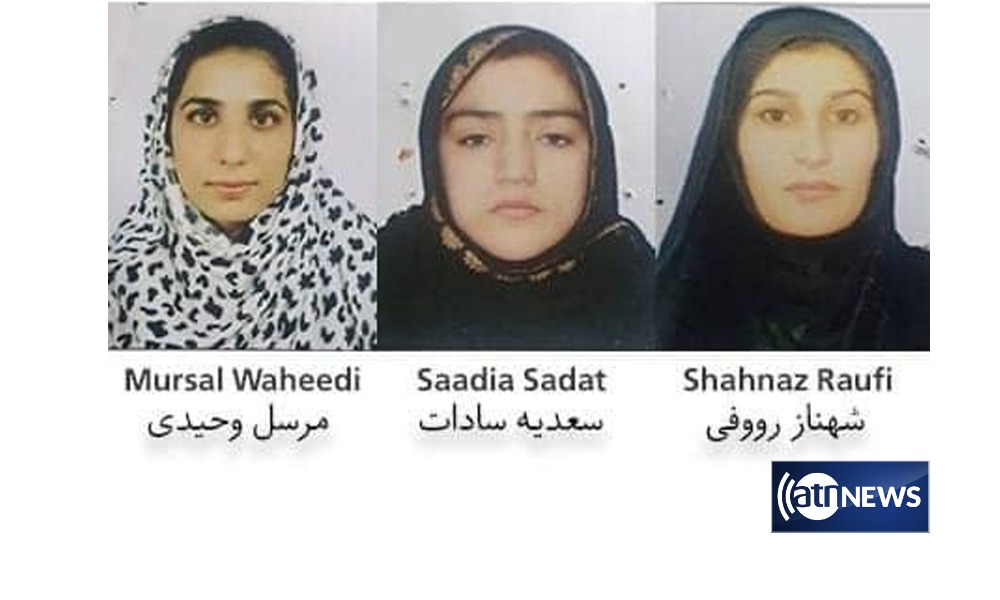
Islamic State (Daesh) has reportedly claimed responsibility for the attack that killed three media workers in Jalalabad, in Nangarhar, on Tuesday evening.
According to SITE Intelligence group, Daesh said on Tuesday night its fighters had targeted the three female employees of Enikas TV.
However, Interior Minister Massoud Andarabi says although Daesh has claimed responsibility for the attack, the claims need to be investigated.
He says a team has been sent from Kabul to Nangarhar to find out which group was behind the killings
Afghan officials said on Tuesday night that one gunman, with links to the Taliban, had been arrested.
The three women, aged between 18 and 20, were gunned down while on their way home from work.
Reports also indicate a fourth woman was critically injured in the attack.
Zalmai Latifi, head of Enikas TV, said the three women were recent high school graduates who worked in the station’s dubbing department.
Provincial police chief Juma Gul Hemat said that the suspected lead attacker had been arrested and that he was connected to the Taliban.
However, the Taliban denied the group was involved in the attack.
This comes after Malalai Maiwand, a female journalist at Enikas TV was killed in December last year along with her driver.
According to Latifi, the TV channel had employed 10 women – of which four had now been killed.
This comes amid a wave of attacks against journalists, media workers, civil society activists and government officials.
The Taliban have said they are not responsible but Afghan officials and some foreign powers have blamed the attacks largely on the group.
“The targeted killing of journalists could cause a state of fear in the journalistic community, and this could lead to self-censorship, abandonment of media activities, and even leaving the country,” said Mujib Khalwatgar, head of Afghan media advocacy group Nai recently.
The US Embassy in Kabul on Tuesday night called the killings “devastating news,” and said these “attacks are meant to intimidate; they are intended to make reporters cower; the culprits hope to stifle freedom of speech in a nation where the media has flourished during the past 20 years. This cannot be tolerated.”
Latest News
Afghan FM Muttaqi discusses Pakistan tensions with Qatari and Saudi officials

Foreign Minister of the Islamic Emirate of Afghanistan, Amir Khan Muttaqi, held separate phone calls with senior officials from Qatar and Saudi Arabia, focusing on the recent escalation between Afghanistan and Pakistan.
In his call with Qatar’s Minister of State for Foreign Affairs, Mohammed bin Abdulaziz Al-Khulaifi, Muttaqi said Afghanistan’s recent security actions were aimed at protecting sovereignty and territorial integrity. Qatar expressed support for reducing tensions and said it is ready to play a constructive role.
During his call with Saudi Foreign Minister Prince Faisal bin Farhan, Muttaqi praised Riyadh’s diplomatic efforts and reaffirmed Afghanistan’s desire for positive relations based on mutual respect. Saudi Arabia stressed de-escalation, dialogue, and respect for sovereignty as essential for resolving disputes.
Both Qatar and Saudi Arabia agreed to maintain ongoing contact and support diplomatic approaches to regional stability.
Latest News
Afghan forces conduct fresh airstrikes on Pakistani military targets
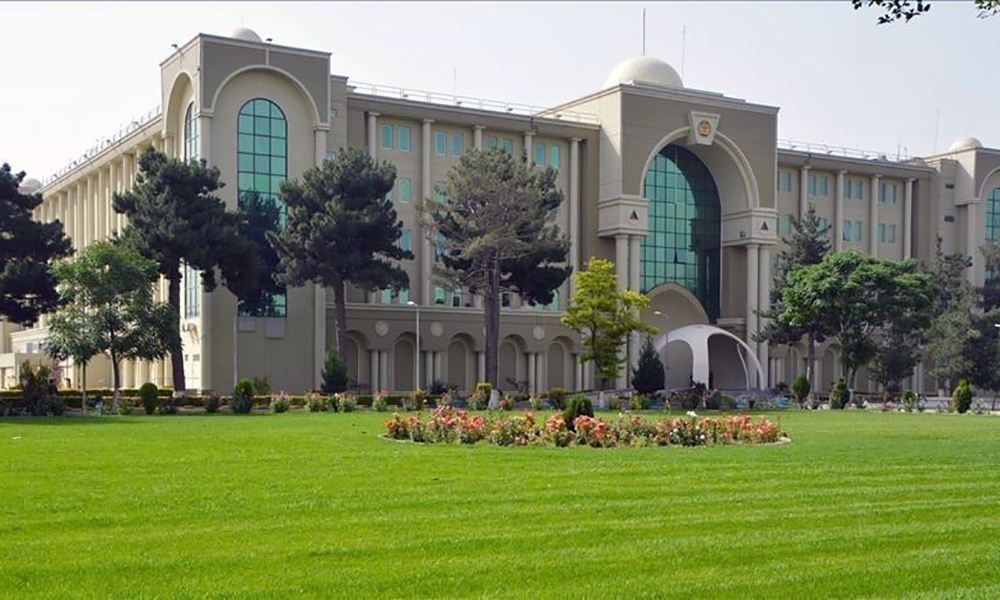
The Ministry of Defense of Afghanistan has announced that Afghan forces carried out fresh airstrikes on military targets in Miranshah and Spinwam, in Pakistan.
The strikes took place last night around 12:00 AM, according to the Ministry. In its statement, the Ministry said the Miranshah and Spinwam military bases were destroyed, resulting in heavy casualties.
The statement added that these “successful strikes were carried out in response to repeated air incursions by the Pakistani military regime.”
Latest News
Pakistani military jet downed in Afghanistan’s Jalalabad, pilot captured alive
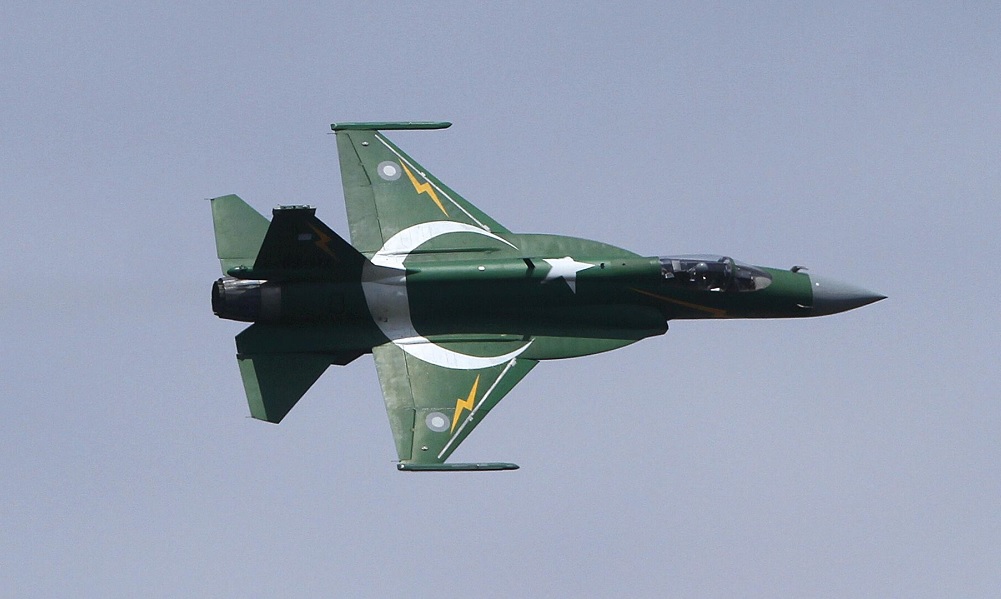
Afghan forces successfully shot down a military jet belonging to the Pakistani military in the 6th district of Jalalabad, according to the spokesperson of the Nangarhar police.
Officials confirmed that the pilot of the jet was captured alive following the incident. The spokesperson did not immediately provide further details on the circumstances leading to the downing of the aircraft or the current status of the pilot.
This development comes amid ongoing tensions along the Durand Line, where security forces from both sides have reportedly engaged in sporadic clashes recently.
-

 Latest News1 day ago
Latest News1 day agoAfghan Air Force conducts airstrikes in Islamabad, other cities
-
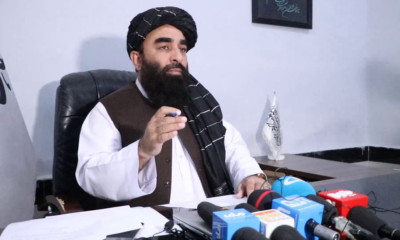
 Latest News1 day ago
Latest News1 day agoIEA: Special circle in Pakistan has launched mission to destabilize region
-

 Latest News5 days ago
Latest News5 days agoIEA rejects Russia’s claims of foreign militants in Afghanistan
-

 International Sports4 days ago
International Sports4 days agoAFC Champions League Elite gears up for Round of 16 as league stage concludes
-

 Sport4 days ago
Sport4 days agoRichard Pybus appointed as head coach of Afghanistan’s national cricket team
-

 World2 days ago
World2 days agoIndia’s Modi backs Israel in address at Israeli parliament
-

 International Sports4 days ago
International Sports4 days agoWinter Olympics 2026 concludes with Norway on top of medal standings
-

 Latest News4 days ago
Latest News4 days agoBennett expresses concern over civilian casualties in Pakistani airstrikes on Afghanistan


